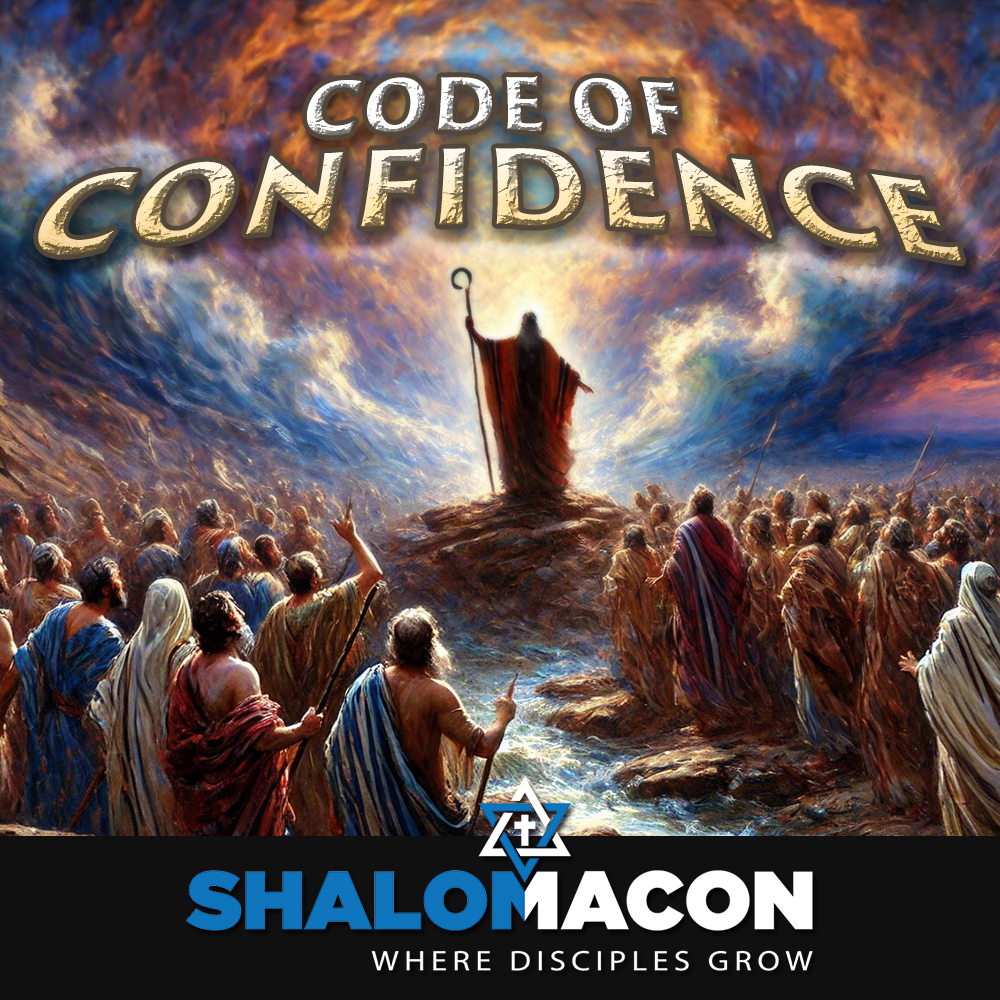Episode Transcript
[00:00:05] Speaker A: It was appropriate today that I.
Judy sent us that military video because I learned a new acronym this week. We have any army army people in here?
Okay, good. And I'm sure there's some online. Here's my new acronym I learned, vuca.
Vuca.
It's acronym that originated in the US Army War College to describe the kind of emerging environment post Cold War, late 80s Cold War is coming to an end, and then the emergence of post cold world. Post Cold world.
Post Cold world.
It stands for vuca. Volatility, Uncertainty, Complexity, Ambiguity.
Vuca.
And though it has since been adopted in much broader terms, in terms of like business and leadership and strategy discussions and trying to capture the fast paced, unpredictable nature of the world in which we live. And while I think it applies in many, many way ways to the lives that we live as individuals in this ever changing planet that we have, I'm not sure that it has ever been applied vuca, that is, in the context in which I want to apply it today. Applying volatility, uncertainty, complexity, ambiguity to Israel's situation immediately upon leaving Egypt and before the parting of the Red Sea. And VUCA provides a very powerful framework for that experience. First of all, volatility. What does that mean? Unstable, sudden change. Volatile. Israel had just been liberated from 400 years of slavery. An event marked by miraculous signs, by amazing wonders. But within days, they found themselves trapped. There's a sea in front, there's an invading army.
Imagine the situation is that volatile. Yes, it's volatile. One moment they're celebrating, we're done, we're free, we're out. Freedom, freedom, freedom. And the next, they're facing what seemed like imminent destruction. That's a fairly wide swing in terms of the emotional volatility and those swings, you know, from joy to terror, from, from, from peace to perceived doom. That's volatile.
Uncertainty, lack of predictability. That's what uncertain is. I don't know what to expect. It's uncertain. The people had absolutely no way of knowing what would happen. Now you could say, of course they did. God had said. God had said, right. But honestly, Pharaoh had let them go. But now he was pursuing them with chariots and an army and transport wagons filled with his whole army, because he really wanted to send them a message.
Their leader, Moshe Moses, had led them into what seemed like a dead end.
Did he actually have a plan? They wondered, is God still here? Is he going to protect us? And they sort of had this lack, an uncertain awareness of what was ahead. Would they reach the promised land?
It's kind of Uncertain at this point.
Complex complexity, multiple interwoven factors. The situation wasn't just about escaping Egypt. That had been done. It was about faith, it was about leadership, it was about logistics, it was about survival. At this point, it's a complex situation. Dealing with the physical challenge of the Red Sea, the approaching army, the psychological burden of fear.
Managing a mass exodus of men, women, children, livestock into a wilderness is fairly complex. Who would like to take up that job?
Ambiguity.
There's a lack of clarity about the reality. The Israelites were still. Remember, they had been just absolutely oppressed, pushed down to the lowest level of humanity as slaves, and now all of a sudden, they were free. But. But are we really free? You can't just wash that off.
There's an uncertainty about their identity. Pharaoh, yeah, he set us free, but now he's coming to kill us again. Are we really free? Are we still slaves?
And Moses did not seem to have a well sorted plan.
Yes, they had seen God move in very dramatic fashion during the plagues. That is undeniable.
But how to read the current situation on the ground, that's complex. And that's actually really all that matters. In crisis, you can be in crisis and think back about all the great things that have happened. That doesn't help. You're facing a complexity that needs to be dealt with. Was God still there? Was he going to move again?
Or had they somehow misunderstood this mission? Had their leader misunderstood the mission? Had Moses led them? They asked, were there not enough graves in Egypt that you had to take us out here to die?
Now, let me ask you a question. I want to give you a word, and I want you to tell me if you think this word describes the way that Israel was feeling at this particular moment. You ready for the word confident?
Or is that the last word that you would ever choose to describe the way that Israel was feeling at this particular moment? And for that moment, for that, for that point matter, for that matter, Moses, Moses, was he confident? It raises another question, though, which is much more practical. Practical. They're not confident. Here's my other question.
Would you have been.
How. How big and bad do you think you would have felt? Would you have been marching with confidence through the Red. Up to the Red Sea? Let's do this thing, Moses.
I'm here, buddy. Let's do it.
No, of course we would be rattled. We're human beings.
Thus it is no surprise that God knew what to do immediately. As this Torah portion opens, which is called beshalach. As it opens, here's what we Read. Let me read. When Pharaoh let the people go, God did not lead them by way of the land of the Philistines, although that was nearer.
For God thought, if the people face war, they may change their minds and return to Egypt.
So God led the people by the roundabout way of the wilderness bordering the Red Sea. The Israelites talk about uncertainty. The Israelites went up out of the land of Egypt, prepared for battle.
Take note of that. And Moses took with him the bones of Joseph, who had required a solemn oath of the Israelites saying, God will surely come to you, and then you must carry my bones with you from here.
How much do you think they were feeling that right now?
The Lord. They set out from Sukkot and camped at Etam on the edge of the wilderness. The Lord went in front of them in a pillar of cloud by day to lead them along the way, and in a pillar of fire by night. Now you know why we sung that song. To give them light so that they might travel by day and by night, neither the pillar of cloud by day nor the pillar of fire by night left its place in front of the people. There's a lot going on in what I just read you, some miraculous things for sure. But listen, first and foremost, God gets us.
Did you know that?
He understands you. He understands your inner workings. He understands your thought and your mind. And he knows how many of us, not all, but many of us, react when put in vuca situations.
God gets vuca mercifully.
He did not lead them into a physical challenge of a battle, which is understandable. You say they were slaves. They were tired, they were helpless, they were beat down. But notice something. I read you and I asked you to pay attention to it. They went up out of the land of Egypt, prepared for battle. Other translations say they were well armed.
So what?
No, that matters because it speaks to the mindset and the lack of confidence that was present among this group of people, which, as you'll see, is an extension of faith, confidence. But it is such a necessary component for battling what we're learning about here, which is called vuca.
Not only had God led them out through signs and wonders, but physically, externally, they were armed.
They were ready for battle.
600,000 men, armed, well armed, prepared for battle. But as Rabbi Hirsch writes, the sword was not lacking at their sides, but courage and the fighting spirit were lacking in their hearts.
Most importantly, they still lacked trust in God, the quality that gives a person determination and courage, power and enthusiasm, no matter what the task, and under any circumstance, since he knows that all is in God's hands. They didn't have that. Now, listen, sort of.
I get to be a little. I get to be a confusing heretic here for just a minute. All is in God's hands. Sort of.
Ooh, that's dangerous.
But also from our text above, I want to show you an easy, easily overlooked comparison of something.
And Moses took with him the bones of Joseph, who had required a solemn oath of the Israel oath, saying, God will surely come to you. Then you must carry my bones with you from here. Great. So what? No, it matters because it speaks to the confidence, faith and trust of Joseph.
Again, from Rabbi Hirsch. 600,000 armed men on their way to the promised land couldn't be trusted to have sufficient confidence in God that he would grant them victory in the battle against anyone for the sake of keeping his promise. Contrast this little Jewish guy, Joseph trust in the fulfillment of God's promise, even if it's to come after his death. What I'm saying is Joseph has no real reason to actually believe that that's ever going to happen, that he's ever. That they're ever going to be able to return to their land. And yet he had confidence that it was going to happen because God said it. And so he had faith and confidence in Go, but he also had to have faith and confidence in the people, in the people to be bold and courageous. And here they are not. Israel is wavering. And I'm not judging because, as I said, we likely would have as well.
But the illustration is to demonstrate the power of faith. Now, that's. That's the spiritual part. Okay, spiritual, the faith part. That's. That's the God part. But there's a second part here, and it. The power of confidence. Confidence, which, yes, it's driven by faith. God is trustworthy, we get that. But confidence speaks more to the fact. More than I believe in something, confidence is demonstrated by action.
That's a difference.
And that action, that action is a demonstration of a fantastic phrase that I also heard this week from another rabbi who I've mentioned to you. He mentioned that he read it or heard it this week. I heard it in his podcast. I liked it. Now you're going to hear it, and I hope you're going to pass it on to someone else who needs to hear it. That's the way it works.
He said he heard this phrase.
Well, I'll tell you the phrase in a minute.
When facing situations and a world of vuca, the wavering mind, the unfaithful, those lacking confidence, they Say what if?
But, but, but. What if? What if? What if this happens? What if that doesn't go the way I think? What if? What if? What if I fail? What if I fall? What if?
The faithful, on the other hand, those demonstrating trust in God and that they will confidently step out, knowing God will move with me and direct their step.
They don't ask the question, what if? They don't say, what if?
Rather, even if, even if. And the difference in those two phrases is so incredibly powerful. Even if it gets difficult, even if it hurts, even if it takes longer than I ever imagined, even if it takes me in a different direction than I wanted to go, even if I fail, even if I'll take the step.
There were a lot of reasons for Israel to ask what if?
But, but, what if?
What if?
Now, listen, there's not a year that goes by when we come to this Torah portion where I don't bring this particular point out because it is one of my favorite moments of the entire Torah. It's not even stated outright, but it's that moment when Moses gives the speech on the shore.
It's that moment he gives Israel the even if speech.
And here's what he says.
They're complaining. They're asking, were there not enough graves that you took us out here to die? What are you thinking, man? Why Moses? What if? What if? What if?
But Moses said to the people, don't be afraid.
Stand firm and see the deliverance of the Lord that will, that he'll accomplish for you today. For the Egyptians whom you see today, you shall never see them again. The Lord will fight for you. All you have to do is keep still. I'm paraphrasing. Followed by, okay, he gives that speech standing on the rock. They're like, yes, Moses, okay, even if.
Followed by Moses, but what if?
What if, God?
And again, it's not written down.
All we get is God's response to Moses. He gives the even if speech, and he's empowering them. Let's do it, guys. And then God responds, responds in the next verse.
Why do you cry out to me?
Tell the Israelites to go forward.
But you lift up your staff and stretch out your hand over the sea and divide it, that the Israelites may go into the sea on dry ground. In other words, you can imagine Moses, even if. But, God, what if?
Stand up, Moses.
Why are you crying out to me? Let's do it. Be confident, my man.
You think I chose you to let you fall and fail and flounder?
Even if Moses, lift up Your staff, show them some confidence and let's go.
But there's something I hadn't seen before, which I love. It move me so much because just after these interactions, even if. What if? Stand up, Moses. Here's what the text says.
The angel of God who was going before the Israelite army moved and went behind them.
And the pillar of cloud moved from in front of them and took its place behind them. You get it? There's an angel and a pillar of cloud in front of them. And this interaction goes on. And all of a sudden, now what's there?
Nothing but the raging sea.
So what you ask? It was God once again being merciful. He's moving the. The protective agents to. To separate them from Pharaoh's army. No, the sea was to retreat not before an angel of God, but before human beings who put their trust in him, demonstrating that trust through the confidence to step into the sea. They were not able to follow the angel in. They were not able to follow the cloud. Those things moved behind because God wanted them to do it.
The salvation was dependent on the people.
And you may say, that can't be. No, it is.
This moment depended on the people. The first step had to be taken by them. The courage.
That is what leads to courage.
That is what leads to confidence. Confidence is built by taking action.
And the more actions you take, the more confident you become. It's a cycle. That's the way it works in life.
They had to demonstrate their faith through confident action. And so when I said heretic, heretically, not really before that. It's all in God's hands. Guess what?
God wants you to do something.
He'll do his part faithfully.
You must demonstrate confidence first. Let them go forward and march into the sea without reservation or concern. Only then will God pave the way to salvation.
Action conquers fear. Action builds confidence. Confidence makes the next step of action easier. They are working in tandem, and God knows it. But he wanted them to see it.
And I want you to see it.
Vuca.
Volatility, uncertainty, complexity, ambiguity. This is life.
And I see in others so often, and I live out at times personally, such fear and paralysis for the great things that we know we can and should do. But what if?
What if? What if, Alan?
No man.
Even if.
Even if.
I love. A Marcus Aurelius quote at this particular moment from his diary Meditations. It is not death that a man should fear, but he should fear, never beginning to live.
Fear.
Lack of trust, lack of confidence. They lead to missed opportunities.
We are created by the Creator of The universe for such a time as this. This is your time. And I'm not giving you a Tony Robbins speech here. I'm just telling you.
I like Tony Robbins. This is your time. This is the space in which you were created to occupy on the Earth. You were created as a partner in creation to God. Yeah, more heresy. No, not at all. That's the Jewish way of looking at life. You have a job, you have a mission. You have to repair the world. You have to prepare the world. You have to minister to people, you have to teach, you have to help. And you got to do your part to live the life that God made you to live. And you cannot do it in fear.
You cannot do it looking around every corner asking, what if?
You can only do it by saying even if. And we don't approach it with some type of proposed superhuman pride, that we're infallible or. Or. Or unsinkable. We are. We're both of those things.
But to build and to flourish and to repair. And this scripture is quoted so often that it can lose its impact. But let me just give it to you.
Therefore, I tell you, don't worry about your life, what you'll eat, what you'll drink, or about your body, or what you'll wear. Is life not more than food, and the body more than clothing? Look at the birds of the air. They neither sown or reaped nor gather into barns. And yet your heavenly Father feeds them. Are you not of more value than them? And which of you, by worrying, can add a single hour to your span of life? And why do you worry about clothing? Consider the lilies of the field, how they grow. They neither toil nor spin. Yet I tell you, even Solomon in all his glory, was not clothed like one of these. But if God so clothes, the grass of the field which is alive today and tomorrow is gone, thrown into the oven, will he not much more clothe you of little faith? Therefore do not worry saying, what will we eat? What will we drink? What will we wear? For it is the Gentiles. That's what he said. You know what he meant. The idolaters who seek all these things. And indeed your Heavenly Father knows that you need all these things, but seek first the kingdom of God and his righteousness, and all these things will be given to you as well. And here it is. Don't miss it. So do not worry about tomorrow, for tomorrow will bring worries of its own.
Today's trouble is enough for today.
You call that the Vuca text?
Volatility, uncertainty, complexity, ambiguity. And that last part is not very encouraging. I get it.
But man, even if see, God doesn't allow more than you can handle, though I know sometimes it doesn't feel that way. He was gracious enough to lead Israel away from the Philistines so they didn't have to go to war, even though they were armed for battle. Because he knew they weren't ready. He was so kind as to provide them a fire and a cloud to lead. He was so loving as to bring them to the seashore to experience yet another miracle of epic proportion. But this time they were ready. And the questions what if we're not going to be tolerated?
Even if Moses was ready, even if they struggled to see it or feel it, they need to take the step. Then God could move. Now we have to be careful to not get ahead of God. I understand. But live, breathe. Trust, confidence.
This part that I'm sharing with you about faith and confidence, it's spiritual. But there's a practical and I want to share it with you about building and living with confidence. It's important. It's valuable. Last year we met the guy who took the first step into the sea. The guy. And we created a verb. We created a phrase. What was it?
Nachshon it, Step in, take action, Nakshon it. And even though next week we will have moved past the story of the sea and nachshon and all this stuff, guess what? I want to stay here just one more week.
Because I want you to get this, to apply it, and to prosper in life because of it. It confidently Shabbat Shalom I'm Darren with Shalom Macon.
[00:27:14] Speaker B: If you enjoyed this teaching, I want to ask you to take the next step. Start by making sure you're subscribed to our channel. Next, make sure you hit the like button on this video so that others know it's worth their time to watch. Last, head over to our website to learn more about Shalom Makin, explore other teachings and events and if you're so inclined to and contribute to the work that we're doing to further the kingdom. Thanks for watching and connecting with Shalom Macon.



